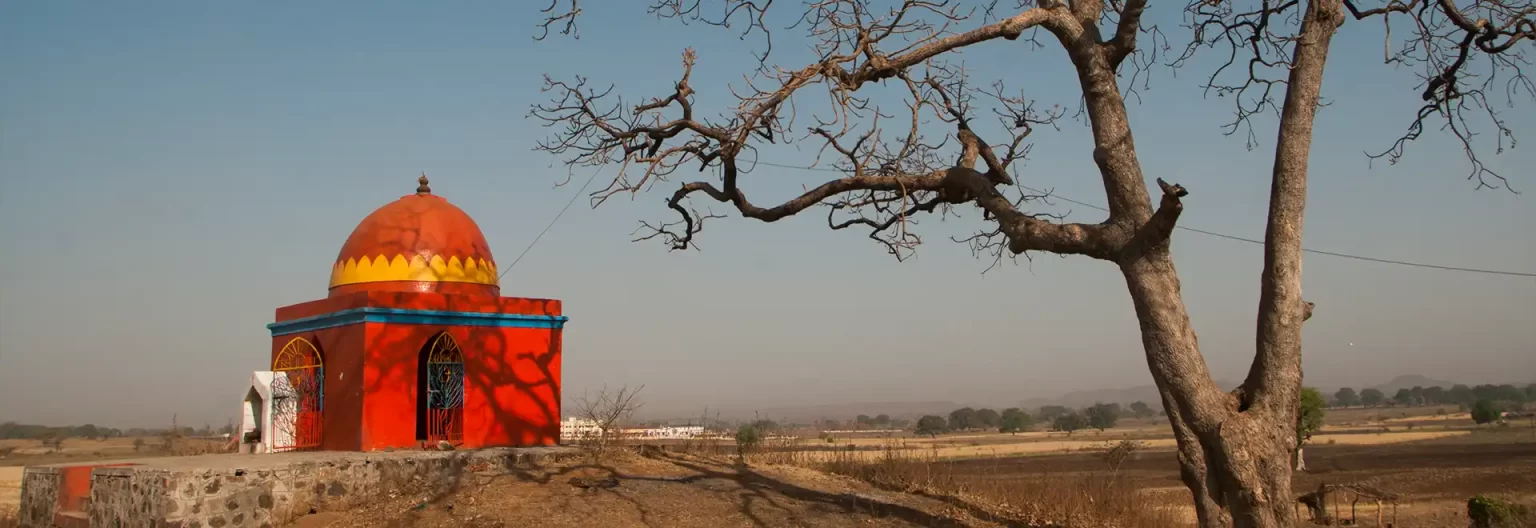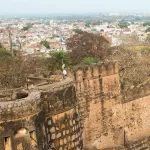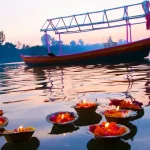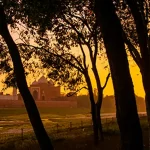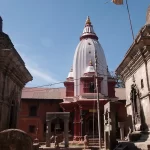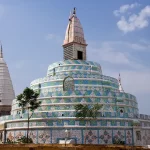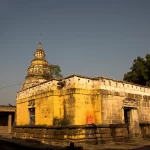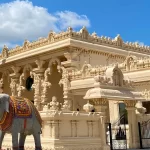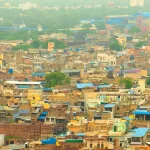Mahoba
Mahoba, a quaint town in Uttar Pradesh, is a treasure trove of history and culture. Known as the land of valor and love, Mahoba is synonymous with the Chandela dynasty, which left an indelible mark on its history. The town’s name is derived from “Mahotsav Nagar,” a reference to the grand celebrations held here during its golden era. Famous for its ancient temples, forts, and lakes, Mahoba narrates tales of bravery and architectural brilliance, making it a must-visit destination for history enthusiasts and travelers.
Ancient History
Mahoba’s roots trace back to the Chandela dynasty, which ruled this region from the 9th to the 13th century. The Chandelas were known for their patronage of art and architecture, with the iconic Khajuraho temples being their most famous contribution. Mahoba served as their capital and flourished under their reign. Historical accounts also mention the valiant battles fought by the Chandela rulers, particularly King Parmal and the legendary warrior Alha, whose tales are immortalized in folklore. The town’s history is a testament to its strategic importance and cultural significance.
Mahoba in Literature
Mahoba finds mention in various literary works and folklore. The epic ballads of Alha and Udal, two legendary warriors, are an integral part of the region’s cultural identity. These ballads celebrate their heroism and loyalty to the Chandela king. Ancient texts and inscriptions also highlight Mahoba’s prominence as a center of art, literature, and spirituality during the Chandela period. The town’s rich literary heritage continues to inspire local storytelling and cultural traditions.
Major Festivals in Mahoba
Mahoba’s vibrant festivals reflect its cultural diversity and historical roots. Some of the most celebrated events include:
- Alha Udal Festival: This festival honors the legendary warriors Alha and Udal, featuring cultural programs, traditional music, and storytelling sessions.
- Mahoba Mahotsav: A grand celebration showcasing the town’s cultural heritage, this festival includes folk dances, music performances, and exhibitions of local crafts.
- Diwali: The festival of lights is celebrated with great enthusiasm, with temples and homes illuminated, and special prayers offered.
- Navratri: Dedicated to Goddess Durga, this festival includes vibrant rituals, dance performances, and fairs.
How to Reach Mahoba
Mahoba is well-connected by various modes of transportation, making it easily accessible for travelers:
By Air: The nearest airport is Khajuraho Airport, approximately 55 km away. From there, taxis and buses are easily available to reach Mahoba.
By Train: Mahoba Junction Railway Station connects the town to major cities like Delhi, Jhansi, and Kanpur, ensuring convenient travel.
By Road: Mahoba is linked to neighboring towns and cities via a network of well-maintained roads. Regular bus services and private vehicles operate on these routes, making road travel a viable option.
Places of Interest
Mahoba offers a blend of historical, cultural, and natural attractions that captivate visitors. Key places to explore include:
- Sun Temple (Rahila Sagar): Built by Chandela rulers, this ancient temple dedicated to the Sun God showcases exquisite architecture and intricate carvings.
- Kakramath Temple: Situated near Madan Sagar Lake, this temple is a fine example of Chandela architecture and devotion.
- Vijay Sagar Pakshi Vihar: A bird sanctuary that attracts migratory birds, this spot is perfect for nature lovers and birdwatching enthusiasts.
- Madan Sagar Lake: An artificial lake created during the Chandela era, it adds to the town’s scenic beauty and offers boating opportunities.
Tourist Attractions
Apart from its historical landmarks, Mahoba offers several attractions that highlight its cultural and natural richness:
Gokhar Hill: Known for its panoramic views and ancient caves, this hill is a popular spot for trekking and exploration.
Charkhari: Often referred to as the “Kashmir of Bundelkhand,” this nearby town is known for its lush greenery, palaces, and serene lakes.
Alha Tala: A revered site associated with the legendary warrior Alha, it serves as a pilgrimage destination and a place of historical interest.
Tourism-Related Information
Mahoba provides a comfortable and enriching experience for tourists. Here are some travel tips and essential details:
Best Time to Visit: The ideal time to visit Mahoba is between October and March, when the weather is pleasant and conducive to outdoor exploration.
Accommodation: A range of lodging options is available, from budget-friendly hotels to mid-range accommodations. Many establishments reflect the town’s traditional charm.
Local Cuisine: Mahoba’s culinary offerings include traditional Bundelkhand dishes like dal bafla, poha, and laddoos. Local eateries and street food stalls provide a taste of authentic flavors.
Mahoba – Arts, Craft, and Culture
The cultural vibrancy of Mahoba is evident in its traditional arts, crafts, and festivals. The town is known for its terracotta pottery, stone carvings, and intricate woodwork. Folk music and dance, especially performances inspired by the tales of Alha and Udal, are an integral part of Mahoba’s identity. Local fairs and festivals provide a platform for artisans to showcase their crafts, ensuring the preservation of these age-old traditions.
Public Guidelines During Festivals
To ensure a safe and respectful experience during festivals in Mahoba, visitors are advised to follow these guidelines:
- Maintain Cleanliness: Dispose of waste responsibly and avoid littering in public spaces and near historical sites.
- Respect Local Customs: Observe traditional practices and dress modestly, particularly during visits to temples and sacred sites.
- Eco-Friendly Practices: Use reusable or biodegradable products to minimize environmental impact.
- Stay Informed: Follow local news and announcements for updates on festival schedules and public guidelines.
- Plan in Advance: During major events, book accommodations and transportation early to avoid last-minute hassles.
Mahoba’s rich history, cultural heritage, and natural beauty make it a destination worth exploring. Whether you are drawn to its ancient temples, vibrant festivals, or serene lakes, the town offers a unique blend of experiences that leave a lasting impression. Step into the land of the Chandelas and immerse yourself in its timeless charm and stories of valor.

